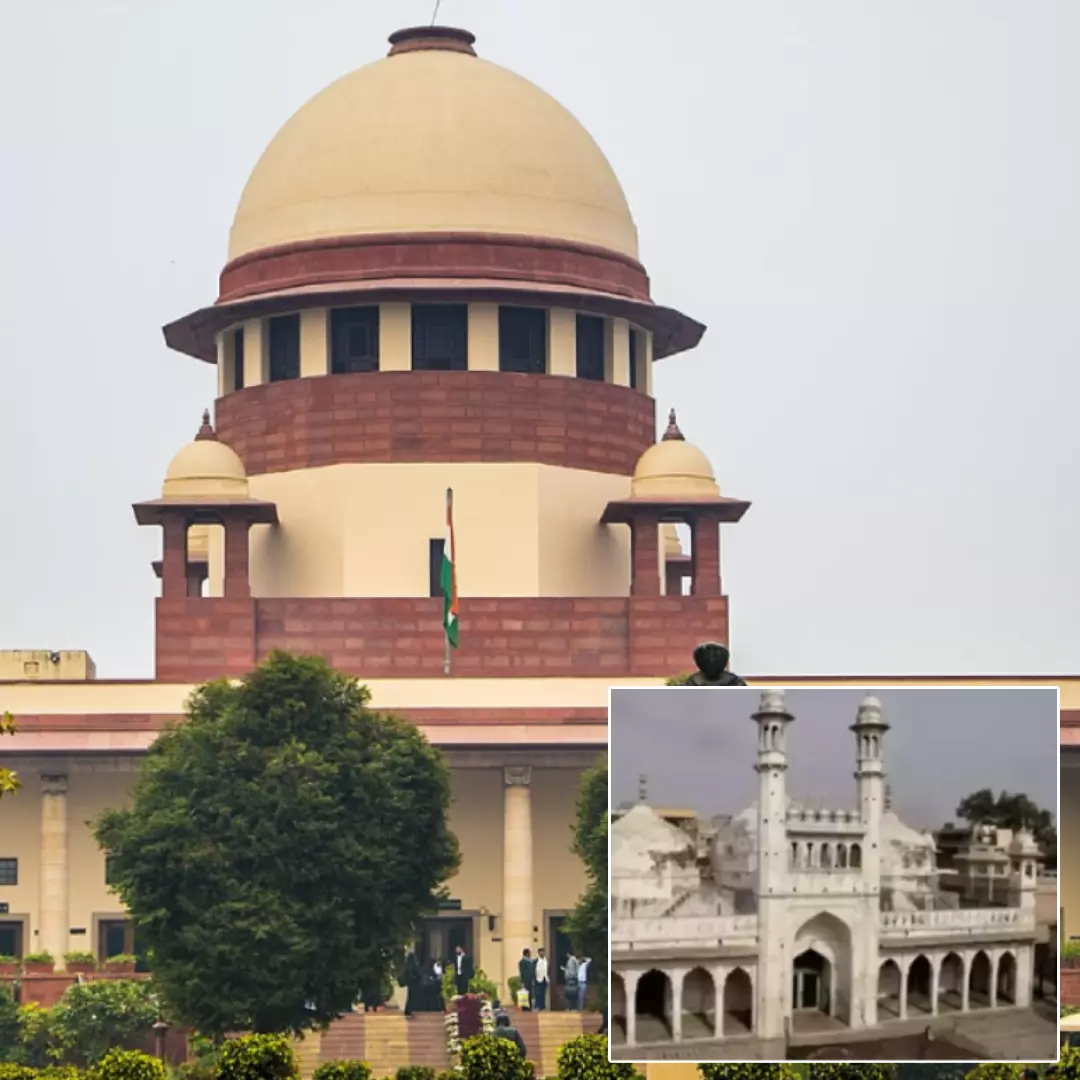The Supreme Court of India has granted permission to the Archaeological Survey of India (ASI) to conduct a scientific survey at the Gyanvapi mosque complex in Varanasi. The court rejected the demand from the Muslim side to keep the report of the survey in a sealed cover. The survey aims to determine if the historic mosque was built on top of a pre-existing temple, a matter of contention between the Hindu and Muslim communities.
The Supreme Court assured the Muslim side that non-invasive techniques will be used during the survey to minimize any potential impact on the structure of the 17th-century mosque. The ASI had initially suspended the survey on July 24 due to a petition against it in the Allahabad High Court, but the survey resumed after receiving approval from the High Court on August 3.
The Hindu side welcomed the Supreme Court’s decision, as it refused to stay the High Court order that permitted the survey. The court clarified that the ASI will not conduct any invasive actions during the survey, and no excavation or destruction will be carried out on the mosque structure.
“On your Order VII Rule 11, subject to hearing, we’ll issue notice. So far as the survey is concerned, since all these safeguards have been ensured… After all it’s in an interlocutory order, why should we entertain? It’s an interlocutory order. Why should we interfere at this stage? We’ll keep all other objections you have to the commissioner’s report, open. We’re not saying that it’s admissible or should be relied upon… that can be argued,” the CJI told senior advocate Huzefa Ahmadi, who is representing the Muslim side in the case, as per a report in News18.
Solicitor General Tushar Mehta, representing the ASI and the Uttar Pradesh government, assured the court that all necessary precautions and safeguards would be in place during the survey. The Supreme Court emphasized that it is primarily concerned with the High Court’s order and has made the ASI submit an affidavit stating that no excavation will occur during their survey.
The Court clarified that it would issue notice on other objections raised by the Muslim side regarding the commissioner’s report and urged both parties to maintain transparency throughout the process. The Muslim side raised concerns that conducting the survey would be contrary to the Place of Worship (Special Provisions) Act, which aims to protect the religious nature of places of worship in India.
The Gyanvapi mosque case has its origins in the year 1991 when the first petition was filed by Swayambhu Jyotirlinga Bhagwan Vishweshwar in the Varanasi court. The petition demanded the right to worship in the Gyanvapi complex and put forward three demands, including declaring the entire complex as part of the Kashi temple, removing Muslims from the area, and demolishing the mosque.
Gyanvapi Mosque Case Timeline
In response to a fresh case filed by Anjuman Intezamia Masjid Committee in the Allahabad High Court, it was argued that the temple-mosque land dispute could not be adjudicated by a civil court as it was not permissible by the law. The High Court stayed the proceedings in the lower court for 22 years.
The issue resurfaced when Rastogi filed a plea on behalf of Swayambhu Jyotirlinga Bhagwan Vishweshwar in the Varanasi district court, demanding an archaeological survey of the entire disputed area. The petitioner claimed to be the “next friend” of Swayambhu Jyotirlinga Bhagwan Vishweshwar.
The intervention of Rastogi and the Anjuman Intezamia Masjid Committee led to the resumption of the case. The matter was also examined by the Supreme Court, which sought the central government’s response to a PIL questioning the validity of the Places of Worship Act 1991, a crucial aspect of the case.
Subsequently, five Hindu devotees filed a petition in the Varanasi Court seeking permission to worship deities Hanuman, Nandi, and Shringar Gauri inside the Gyanvapi complex. They also requested restrictions on people causing damage to the idols.
However, the Allahabad High Court, in a judgment by a single judge bench of Justice Prakash Padia, directed the lower court to wait for further judgment in the already pending cases before proceeding with the application for an archaeological survey by the Archaeological Survey of India (ASI).
In August 2021, based on a petition filed, the Varanasi court appointed an advocate commissioner and ordered a videography survey of the Gyanvapi complex. The decision was challenged by the Anjuman Intezamia Masjid Committee in the Allahabad High Court, but the High Court upheld the order. Subsequently, the party filed a Special Leave Petition in the Supreme Court. The case remains a matter of ongoing legal dispute.
Also Read: India To Become $6.7 Trillion Economy By 2030, Says Research Firm
https://thelogicalindian.com/h-upload/2023/08/05/500x300_232799-web-11-4.webp
Trending
2023-08-05 08:43:52.0
Gyanvapi Mosque Case: SC Refuses To Halt ASI Survey













